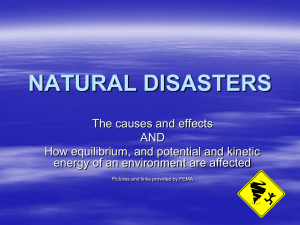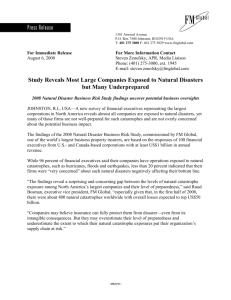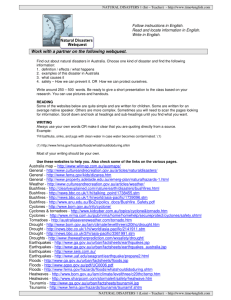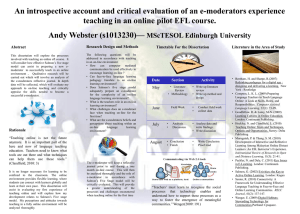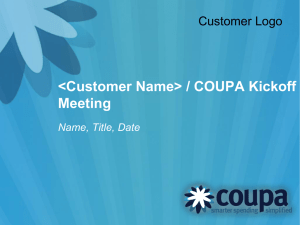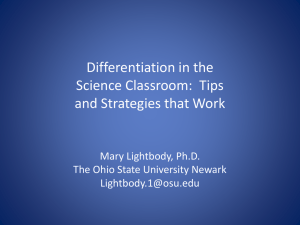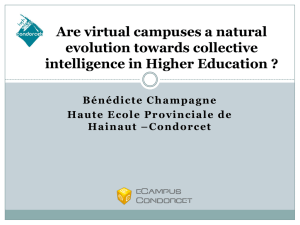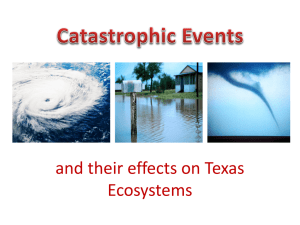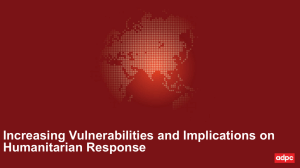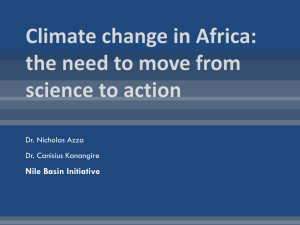a natural disaster course on web 2.0erc.eu
advertisement
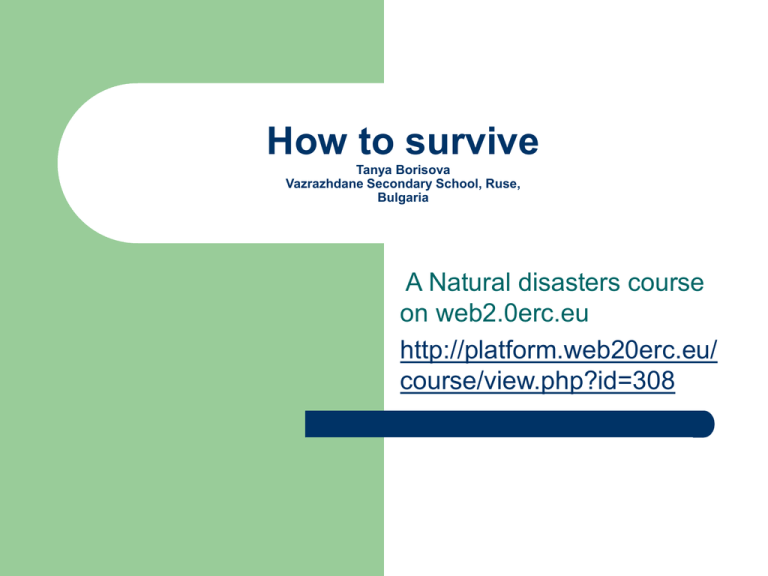
How to survive Tanya Borisova Vazrazhdane Secondary School, Ruse, Bulgaria A Natural disasters course on web2.0erc.eu http://platform.web20erc.eu/ course/view.php?id=308 The aims of the course – The course aims to develop students’ skills in three areas: 1. Survival skills; 2. Language communicative skills; 3. Social skills A: Survival skills: To provide students with information on the nature of three natural disasters ( earthquakes, floods and fires) which are most likely to happen in our geo-physical location as well as to inform them about the most appropriate actions they have to take in order to be prepared to face dangerous situations so as to survive, or to help other people in case of casualties, or how to avoid additional injuries and damages. B: Language communicative skills: Through various activities to exercise the four main communicative skills – receptive and productive: To encourage students to read additional information in articles, (developing their reading skills), to listen and watch videos for general understanding ( developing students’ listening skills) to share thoughts orally – in class – speaking and in written form on the platform ( developing their speaking and writing skills) To teach new vocabulary on the topic To create inter disciplinary links between Geography, History and English C: Social skills *To encourage students to do their “boring” school work *To encourage students to use the internet for educational purposes *To get students know more about specific jobs such as of a nurse and a firefighter, which do not seem to be popular with and desired by young people To improve students’ interpersonal relations through group work The Course 1. Natural Disasters- an on-line, web2.erc.eu based course in three Modules Module 1 – Earthquakes Module 2 – Floods Module 3 – Fires Practical training – Lectures and training: At the school’s surgeryAt the regional fire station In class training and language development Teacher’s work Planning Educational Materials selection Setting the tasks Helping students with their work on-line Taking part in the discussion Supervising and commenting Assessment ( summative and formative) Teaching language on-line Students develop their communicative skills Reading comprehension Listening comprehension Writing NB – Speaking can also be practiced on-line in webinars via skype or other social network options Procedure The on-line Modules’ structure: 1. Warm-up questions for discussion on the Forum space 2. Articles to read and discuss 3. Videos to watch and discuss Module 1 Earthquakes http://platform.web20erc.eu/course/view.php ?id=308 earthquakes Module 2 Floods • What causes floods http://video.nationalgeographic.com/video/environment /environment-natural-disasters/landslides-andmore/floods/ Module 3 Fires http://platform.web20erc.eu/course/view.php ?id=308 Fires at home In class activities Discussions on the topics Writing a Thank-you letter INTERDISCIPLINAR LINKS Knowledge and skills in Geography History Social studies and Civil defense Communication Medical care and first aid Results Students feel more confident Students have learnt about the Nature of Natural disasters and ways to survive Students learnt New Vocabulary on the Topics Students know how to write a formal Thank-you letter and speak about past events Students know how to help other people in case of an emergency Students know how to use the web2.0erc.eu platform for educational purposes STUDENTS’ ATTITUDE AND FEELINGS ABOUT THE COURSE 90% 80% 70% 60% 50% Students feelings about the course 40% 30% 20% 10% 0% :) :I :( Students’ would take part in other courses 100% 90% 80% 70% 60% 50% 40% 30% 3-D Column 1 20% 10% 0% Would Wouldn't work on like to another work on on-line other oncourse line course
